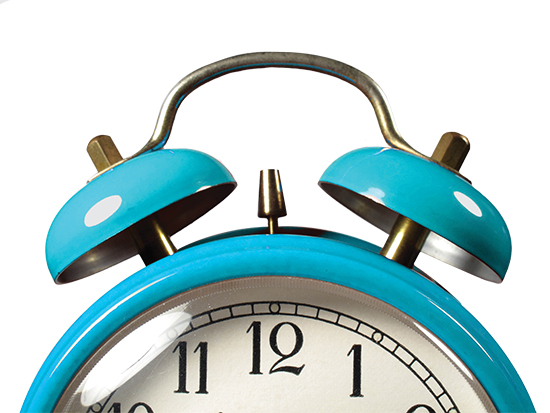
Do Early Risers Have Life by the Horns?
Experts explain the many health benefits of beating the clock.
By Natalie Kaar
Updated: November 13, 2019
“Nothing good happens after midnight. A lot happens before noon.” Two phrases yours truly was told a trillion times in my teens. Then there’s that Benjamin Franklin gem: “Early to bed and early to rise makes a man healthy, wealthy and wise.” OK, but is early rising really something to which we all should aspire? When it comes to the biggies, like health and well-being, do early risers really hold all the cards? Three leading experts in sleep medicine: The Sleep Doctor Michael Breus, Ph.D., clinical psychologist to the stars and regular guest on “The Dr. Oz Show”; Lewis B. Eberly, M.D., Ph.D., of Inova ALFA Neurology; and Lawrence M. Stein, M.D., medical director of Virginia Hospital Center’s Sleep Laboratory, break down the chief health benefits of being an early riser.
It all starts with personality. Stein says, “Early risers tend to be more proactive and task-oriented,” or as Breus describes, “well-organized and effective in their work; what some people have called right brain people.”
They also tend to be “optimistic and happy with their lives,” says Stein, and as Eberly explains, early birds tend to have better coping skills and report higher energy levels as well as more ease in problem solving.
Conversely, night owls, as Breus details, “tend to be more artistic, less organized, moody and depressed.” Also, according to Stein, “[Night owls] have a higher incidence of tobacco and alcohol use, which could be due, in part, to their biological clocks being out of sync with societal norms.”
Eberly further illustrates this struggle, sometimes referred to as social jet lag. “In recent years, several genes have been found to promote early rising or a late sleep period in some of us. … A major problem for night owls is that our society is oriented around a schedule that is consistent with getting up early.”
But all is not bleak for late sleepers. As Eberly points out, “There is also evidence that night owls are more imaginative, and score better on creativity tests, and are smarter [than early risers].” He also stresses that the data is based on population studies and does not generalize to all people.
Still, early risers seem to take the prize when it comes to wellness. One key factor is their consistency with sleep and wake-up times. Breus explains, “This puts their circadian rhythm on a set schedule, which is helpful for most hormone balance.”
Another big thing going for early birds is their tendency to exercise more than night owls. Our experts also report that data shows early risers watch less TV, and are less likely to be obese.
According to Stein, the medical issues of night owls have been best studied in children. He says, “One of the most important findings is that [late-to-bed]/late-rising adolescents have a higher BMI and are 1.47 times more likely to be overweight or obese than early-rising [adolescents].”
But, now, before you go labeling yourself a lark or an owl, realize that the majority of us lie somewhere in the middle of the spectrum. See where you stand by taking the Morningness-Eveningness Questionnaire (MEQ) at [tinyurl.com/earlyrisersNVM]
Early Riser Guide
(January 2015)
